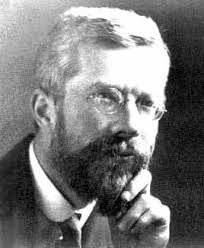Who Said Statisticians Were Uninteresting?
 I recently read Sharon Bertsch McGrayne’s The Theory That Would Not Die, which recounts the controversial history of Bayes theorem in the world of statistics. To oversimplify quite a bit, Bayes theorem requires those using it to make an initial guess about, say, the probability that one outcome is more likely than another, and then the theorem helps them revise this probability estimate as new data comes in. Many statisticians hate this idea of starting with “a guess.” One such statistician is the very colorful, and very famous, R.A. Fisher, whom McGrayne described thusly in her book:
I recently read Sharon Bertsch McGrayne’s The Theory That Would Not Die, which recounts the controversial history of Bayes theorem in the world of statistics. To oversimplify quite a bit, Bayes theorem requires those using it to make an initial guess about, say, the probability that one outcome is more likely than another, and then the theorem helps them revise this probability estimate as new data comes in. Many statisticians hate this idea of starting with “a guess.” One such statistician is the very colorful, and very famous, R.A. Fisher, whom McGrayne described thusly in her book:
“Even with thick glasses he could barely see three feet and had to be rescued from oncoming buses. His clothes were so rumpled that his family thought he looked like a tramp; he smoked a pipe even while swimming; and if a conversation bored him, he sometimes removed his false teeth and cleaned them in public.”
All together now: Eeeeewwwww!!!!
